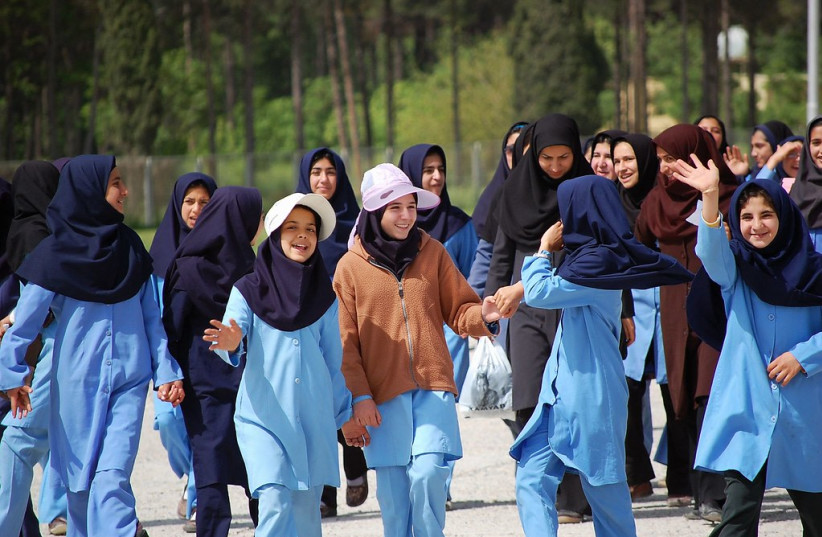Hundreds of girls around Iran have been poisoned in their schools since November, the country's Deputy Health Minister Younes Panahi confirmed to the IRNA state news agency.
"After the poisoning of several students in Qom schools, it was found that some people wanted all schools, especially girls' schools, to be closed. It has been revealed that the chemical compounds used to poison students are not war chemicals, and the poisoned students do not need aggressive treatment, and a large percentage of the chemical agents used are treatable."
The statement came after scores of girls in Qom began to experience respiratory poisoning with several requiring hospital medical treatment.
According to Iran International, the poisoning began in Qom and spread to other cities in the area. At least 14 girls' schools in four different cities have been hit.
Last week, Moalleman News' Telegram account featured a message from a group that calls itself "Devotees of the Supreme," which said that education is forbidden for girls and will only poison them. The message also warned that girls all across Iran would be poisoned if their schools were not shut down.

Two weeks ago, parents of girls who were poisoned gathered outside the Qom's governate to protest against the attacks and urged the government to deal with the phenomena.
How is the Iranian government responding to the attacks?
The next day, government spokesperson Ali Bahadori Jahromi said that the government was working to find the cause of the poisonings. A week later, Chief Prosecutor Mohammad Jafar Montazeri ordered a judicial probe into the attacks.
Iran is not the only place where extremists are trying to bar girls from getting an education. While initially promising that girls would continue to get an education, the Taliban began barring women from universities and then teenage girls from high school shortly after it gained control of Afghanistan in 2021.
